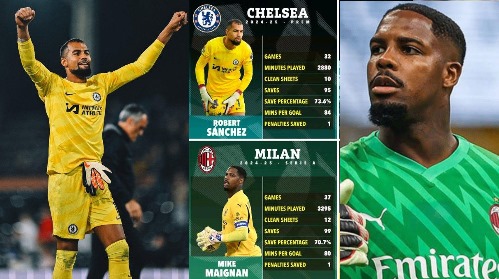The first half of the Premier League clash between Liverpool and Wolverhampton Wanderers at Anfield was a one-sided affair. The home side took the lead in the 34th minute through a well-placed header from Alexis Mac Allister, who connected with Harvey Elliott’s pinpoint cross. The goal was a testament to Liverpool’s superiority, as they had already accumulated 7 attempts on goal by that point, compared to Wolves’ solitary effort.
The Reds doubled their advantage just six minutes later, with young defender Jarell Quansah scoring from close range following a corner kick. This goal exemplified Liverpool’s set-piece prowess, with the team having won 4 corners by the 40th minute, twice as many as their opponents. Quansah’s strike also highlighted the depth in Liverpool’s squad, as the 19-year-old was making only his second Premier League appearance.
Red Card Tilts the Balance
The complexion of the game changed dramatically in the 28th minute when Wolves defender Nélson Semedo was shown a straight red card for a reckless challenge on Alexis Mac Allister. The incident was reviewed by VAR, and the on-field decision was upheld, leaving Wolves to play the remaining 62 minutes with a numerical disadvantage.
The sending-off was a pivotal moment, as it allowed Liverpool to take control of the midfield and dictate the tempo of the game. The home side’s dominance was reflected in their possession statistics, with Jurgen Klopp’s men enjoying 67% of the ball in the first half.

Liverpool’s Attacking Prowess on Display
Liverpool’s attacking prowess was on full display in the first half, with the team registering 12 attempts on goal, compared to Wolves’ solitary effort. The Reds’ attacking trio of Mohamed Salah, Cody Gakpo, and Luis Díaz posed a constant threat to the Wolves defense, with each player coming close to scoring on multiple occasions.
The home side’s attacking play was also characterized by incisive passing and movement, with the team completing an impressive 87% of their passes in the final third. This level of precision and fluidity in the attacking third is a hallmark of Jurgen Klopp’s successful teams, and it bodes well for Liverpool’s prospects in the remainder of the season.
In conclusion, the first half of the Liverpool-Wolves clash was a dominant display by the home side, who took a two-goal lead and played with a numerical advantage for over an hour. Liverpool’s attacking prowess and set-piece threat were on full display, while Wolves struggled to pose any significant threat to the Reds’ goal. The stage is set for an exciting second half, with Liverpool looking to extend their lead and Wolves hoping to mount an unlikely comeback.
Liverpool Cruise to Comfortable Victory Over 10-Man Wolves
The second half of the Premier League clash between The Reds and Wolverhampton Wanderers at Anfield was a tame affair, with the home side content to see out their two-goal advantage against the ten men of Wolves. The sending off of Nélson Semedo in the 28th minute proved to be the turning point, as Liverpool took complete control of the game, dominating possession and creating numerous chances.

Despite their numerical disadvantage, Wolves did manage to create a few half-chances, with Pedro Neto’s long-range effort in the 85th minute testing Alisson Becker. However, the visitors failed to register a single shot on target, a statistic that highlights their toothlessness in attack. Liverpool, on the other hand, had 18 attempts on goal, with Mohamed Salah and Luis Díaz coming closest to adding to the scoreline.
Liverpool’s Substitutions Maintain Control
Jurgen Klopp made a series of substitutions in the second half, bringing on fresh legs to maintain Liverpool’s control over the game. The introduction of Darwin Núñez, Dominik Szoboszlai, and Curtis Jones added energy and dynamism to the home side’s attack, as they continued to probe for a third goal.
The substitutions also allowed Klopp to rest some of his key players, with Trent Alexander-Arnold and Cody Gakpo being replaced in the 71st minute. This rotation of personnel will be crucial for Liverpool as they navigate a congested fixture schedule, with important games in the Champions League and FA Cup on the horizon.
Wolves’ Defensive Resilience Limits Damage
Despite their numerical disadvantage, Wolves showed admirable defensive resilience in the second half, limiting The Reds to a handful of clear-cut chances. The visitors’ backline, marshaled by the experienced José Sá, made several crucial blocks and clearances to keep the scoreline respectable.
However, Wolves’ lack of attacking threat meant that they were unable to capitalize on any potential Liverpool lapses in concentration. With just one shot on target in the entire game, Julen Lopetegui’s side failed to test Alisson Becker, a stark contrast to The Reds’s attacking prowess.
In conclusion, The Reds’s comfortable victory over 10-man Wolves was a testament to their superiority in both personnel and tactics. The home side’s dominance was reflected in their possession statistics (68% in the second half) and their shot count (18 attempts, with 6 on target). While Wolves showed admirable defensive resilience, their lack of attacking threat meant that they were always chasing the game after going down to ten men. The Reds’s rotation of personnel and their ability to control the game’s tempo bodes well for their upcoming fixtures, as they continue their pursuit of silverware on multiple fronts.














